There’s a glimpse of light at the end of a long, dark, tunnel for music venues
Eight months after I first spoke to the CEO of Roundhouse, the outlook has decidedly improved as the easing of lockdown begins, writes James Moore

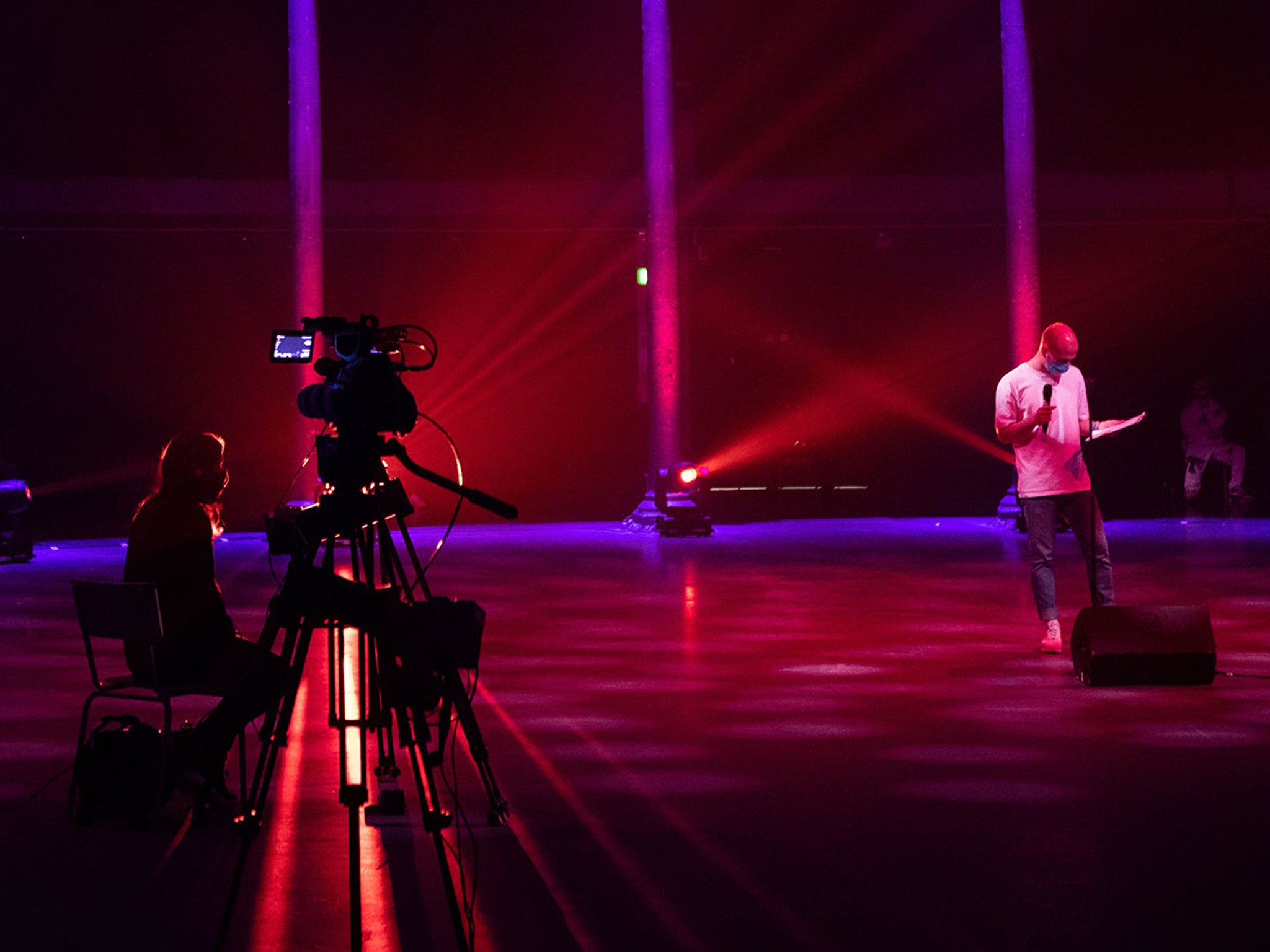
Roundhouse CEO Marcus Davey sees a little more sunlight than eight months ago when we spoke in the eerily silent and dark main hall of the iconic live music venue he runs.
Back then he was crossing his fingers that the place would receive a grant from the government’s Culture Recovery Fund, while at the same time working on worst-case scenarios involving more redundancies.
The money was ultimately forthcoming and now there’s a chink of light at the end of a long, dark, tunnel. In a few short months the place may be buzzing again, making memories and spreading joy.
Behind the scenes things are already moving. Davey has been busy. Business leaders will often tell you that the best time to expand is during a downturn when your competitors are all shutting up shop. While the Roundhouse is run by a non-profit, it seems he subscribes to the maxim.
“We have been planning for a new building on the site, a centre for creative entrepreneurs aged 18-30 and five studios so we can increase the numbers of young people we help and also do more of the ‘into work’ projects which we feel are so important. They focus on employability skills.
Read More:
“We are prioritising young people because in the wake of the pandemic, young people are going to need help and support. They’ve missed out on so much. We have been raising money like hell and we should be starting the building work in May.”
The fundraising includes a lockdown sponsored “Walk Around the Houses” event he was personally involved in, which brought in £350,000, plus lotteries, streaming events and donations from corporate partners.
We’re speaking over Zoom this time, eight months after I first looked at the financial crisis facing live music.
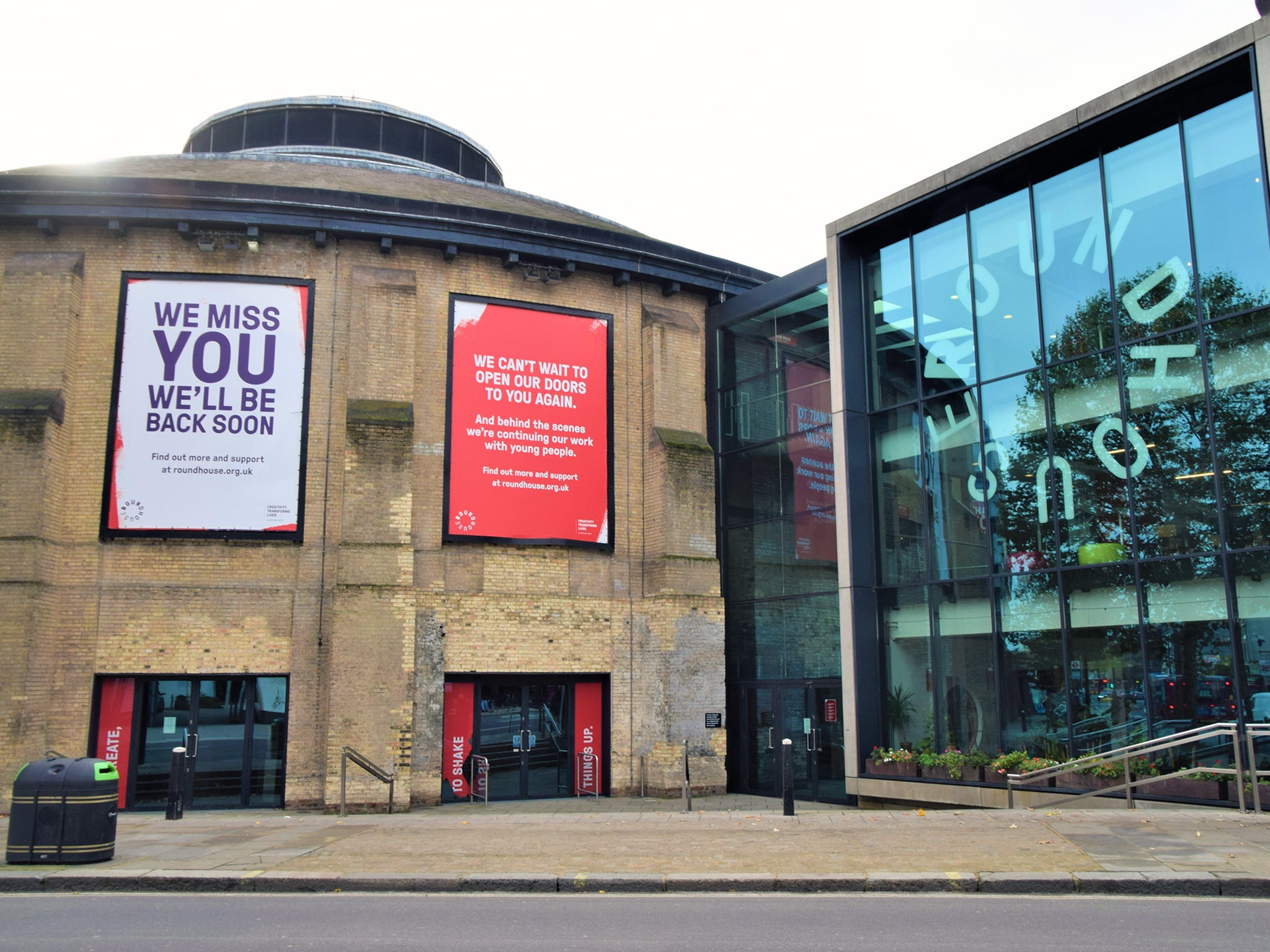
But even via that imperfect medium, it’s clear that the atmosphere has changed. Davey generally has an optimistic air about him, as you might expect from a charity CEO who spends a large chunk of his life glad-handing donors when the money-spinning main venue is open. But now he can see an end to the current crisis in sight, he’s both excited, and maybe a little nervous.
If the NHS’s vaccination efforts continue to show good results, and pestilential new variants may yet have a say, shows could in theory start again at the end of June. But the current uncertainty means there is, at first, likely to be a trickle of them rather than a flood. In just the last couple of weeks, the Idles, with dates scheduled for the end of June, pushed their tour back to January 2022.
Operational and financial hurdles are still confronting the Roundhouse and its peers up and down the nation. They can be quite steep.
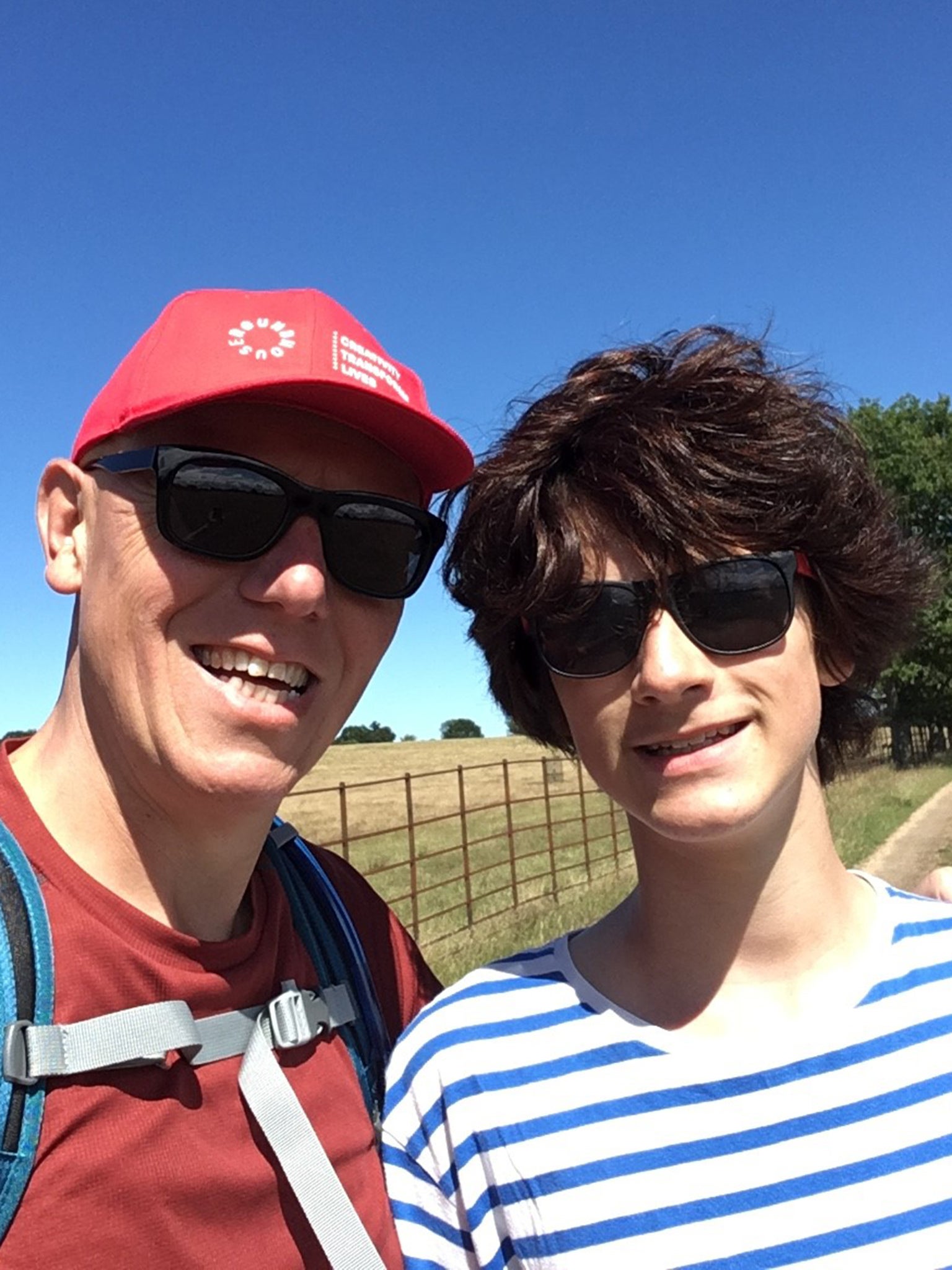
Davey is desperate to see a return to show-going but says venues are on a financial “knife edge”.
“The big challenge we face now is when to start recruiting for dates when we don’t know for certain whether they’ll go ahead. We had to make redundancies so we need more staff for when we reopen. The problem is that we don't have enough money to be able to hire them at the wrong time.”
Davey explains that the venue has to train and get new members of staff up to speed for the jobs they are going to do before it can open.
During that time it will be paying their wages without generating revenue to cover them. If there is too big a gap between hiring and training, and the date at which revenue generating shows can go ahead, the Roundhouse will find itself in a bind it simply can’t afford.
“It’s a very delicate balancing act,” Davey explains. “We know too that with the venue having been out of action for so long things are inevitably going to go wrong. It really is going to be like starting a car that hasn’t been used for a year.”
But he has also been thinking beyond the potential teething problems: “We’ve been asking ourselves some questions. Is what we do accessible enough? We have learned through the shift of what we do online that different people, those with access requirements, have been able to participate in what we do. This is something we have to be thinking about going forward. Also we’re asking what does live from the Roundhouse mean? What we want to do is push that accessibility far more.”
This is music to the ears of a disabled writer for whom accessibility is always a challenge. For disabled people, is it accessible is the first question that is asked. Too often the answer is “it isn’t”. Others are hampered by financial issues.
It’s fascinating if you look back at the Spanish ‘flu pandemic of 1919; over the following 10 years there was the biggest explosion in theatre building this country has seen. There were ads in newspapers saying ‘come to our well ventilated theatres’
In the meantime, the Roundhouse has been investing in ways to make gig-going safer. Disinfectant fogging, improved air conditioning to suck out dirty air. The hand sanitiser points dotted around the venue that I saw on my original visit will outlast the pandemic.
“It’s fascinating if you look back at the Spanish ‘flu pandemic of 1919; over the following 10 years there was the biggest explosion in theatre building this country has seen. There were ads in newspapers saying ‘come to our well ventilated theatres’,” says Davey, who has clearly taken on board the lessons of pandemic history.
Masks too will remain a feature. Wearing one will be requested, and they will be made available at the doors for those who don’t have them. Enforcing their use may be tougher, especially in the midst of a crowded shows. Clearly, it isn’t just financially that the venue is going to have to perform a difficult balancing act.
“We’ve had to ask ourselves how do we get audiences back in? Are we going to say you need certification or a test? But some people can’t take a vaccine. Some will choose not to.
“What we don’t want to do is to be excluding anybody or reducing the access to our venue. Unless this is done right we will exacerbate the problem. Covid has exposed this great fragility in our society. What we have to do now is say let’s do something different. Let’s make this better. This is something that should permeate every organisation. There can be no going back.”
Getting people into venues safely, but also ensuring they feel safe, is also on the mind of the Music Venue Trust, an organisation representing around 900 small venues.
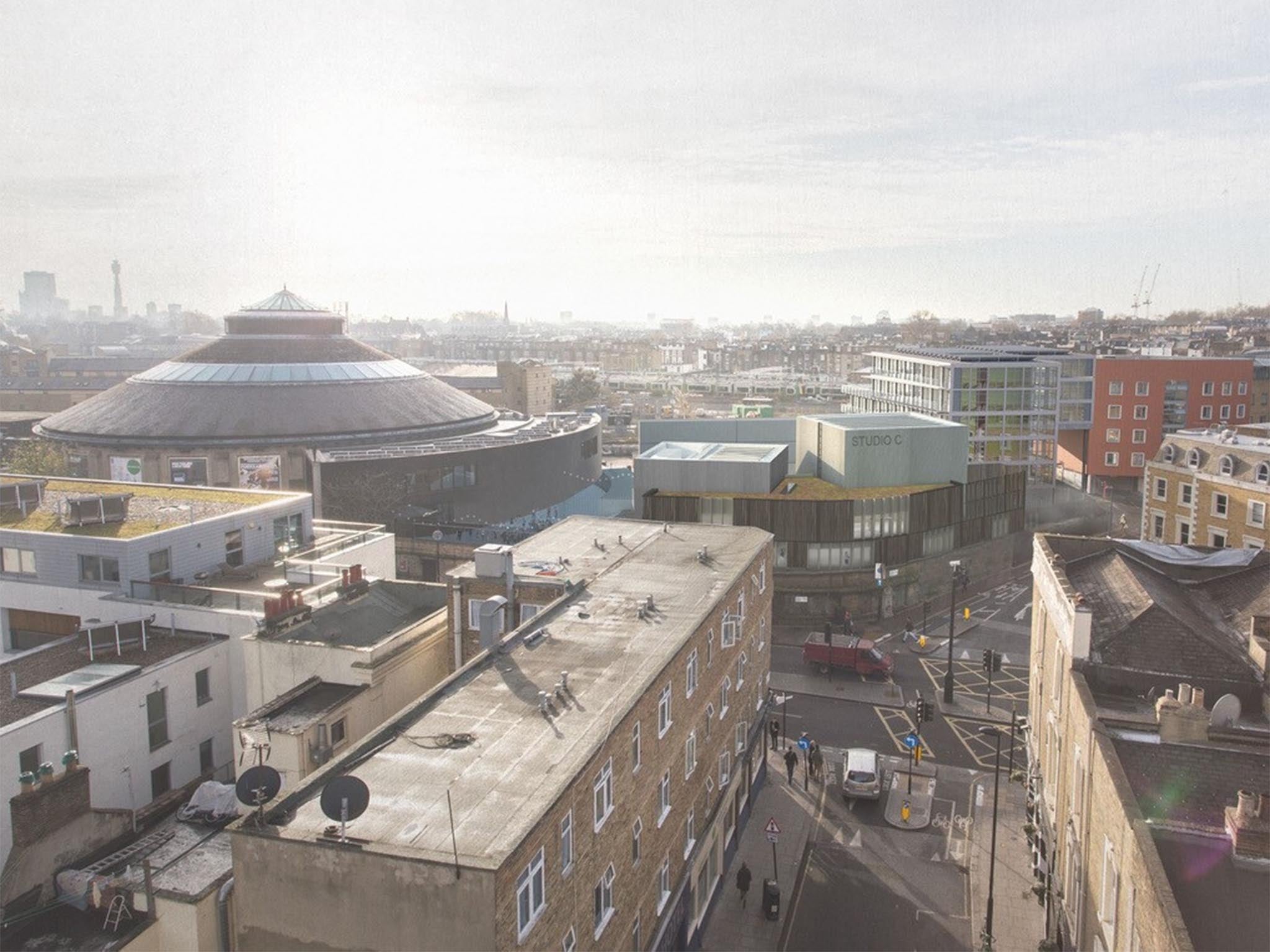
Its members play host to the sort of artists that eventually hope to graduate to the likes of the Roundhouse, and then to bigger venues beyond that. Without them, bands will lose their opportunity to play their first shows, to trial their material in front of audiences for the first time. The dream of playing bigger and bigger venues won’t get started.
CEO Mark Davyd, who co-owns the Forum in Tunbridge Wells, also feels that he has grounds for optimism when compared to when we last spoke.
At that time, the trust had just worked out that it would be cheaper to mothball the sector for an entire year as opposed to running socially distanced shows, and not by a small amount. We’re talking millions of pounds.
We are going to end up with a situation where going to a gig is safer than it ever was before
This time the calculus is different. The question that now confronts the organisation is how to tempt back wary customers so venues can rebuild their shaky balance sheets.
“I think audience confidence is going to be an issue. It’s something we’re working hard on. We’re just starting a survey to gauge how audiences feel. We’ll take measures on the back of that.”
Davyd is refreshingly frank about one of the consequences of a campaign to persuade the public live music is safe in a post-pandemic world: “What we might have to do is tell people how unsafe it was before the pandemic, what the comparative risks were then compared to where we are now.”
On the other hand, he says: “We are going to end up with a situation where going to a gig is safer than it ever was before.”
One of the reasons Davyd is feeling more upbeat now is that he and his team looked at the pandemic data, fed in some variables, and came up with a reopening timetable that’s fairly close to the one set out by the government
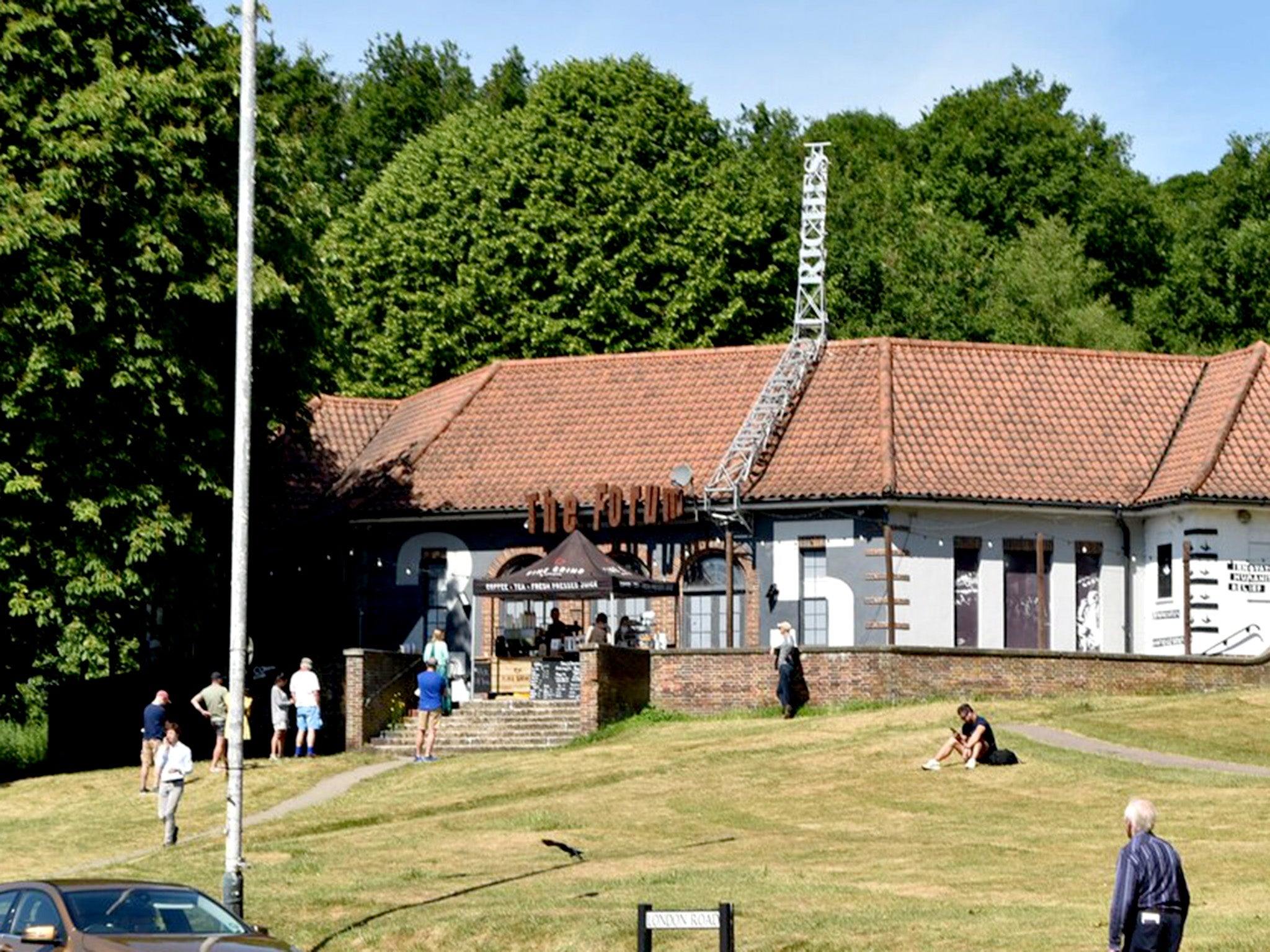
During the long, dark, lockdown, he says his spirits have been buoyed by the “massive support from the local community” the sector has enjoyed.
His own venue has been a fixture in Kent for 28 years. It’s on the trust’s “green” list of those that should make it through but with its doors closed it still needs support. This has been forthcoming.
“In this crisis, the number of people who have written to me, donated money while writing things like I met my partner there, or whatever, the place means something to me. This tells you how close to the heart of the community these venues are.
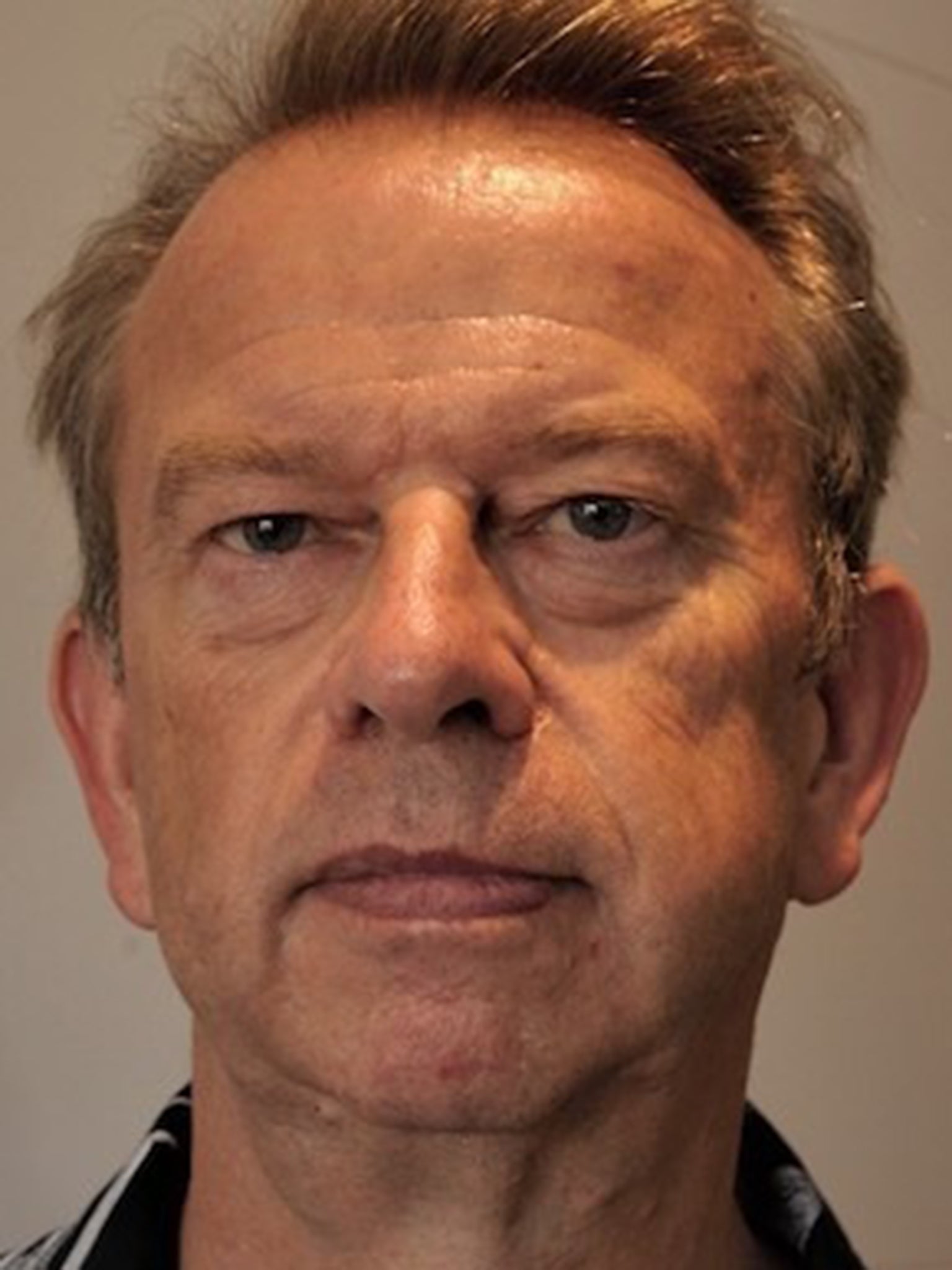
“We don’t really own these places. We are like custodians. I mean, we are in charge and our names are on the letterheads. But they really belong to the people who go there.”
He is, nonetheless, still facing the uncomfortable fact the the trust is having to make almost daily calls to the venues on the critically endangered “red list”. It has also been “fundraising like hell”, selling “Save Our Venues” merchandise, soliciting private donations, helping members access grants from the government and local authorities. These activities have generated an impressive £80m to keep the sector breathing.
The trust was recently able to move 13 venues from its red to its amber list, although that does not mean they are out of the woods. It wasn’t all good news: while the list’s number is now at a much reduced 20, that’s still 20 too many. Six new venues had to be added.
One of the 20 is the Stage and Radio in Manchester.
James Lunham, a partner at the 250-capacity venue says they are “hanging in there” but admits that it’s tough.
“We tried to open in August, we have a kitchen so we did a food pop up but it wasn’t really viable. Grant wise, we had £10,000 at the start from the government and we had £4,000 from the local authority back in January. At the moment we’re paying half rent and we’ve applied to the Arts Council for the Culture Recovery Fund phase two. We’ll find out at the end of March. If we’re successful, we’ll be able to pay back the money we’ve had from the trust so it can be used for other venues.
20
venues are on the critically endangered ‘red list’
“Day to day it’s still difficult. At the moment we are having a real issue with the utilities. Those sort of bills have been a real problem for us.
“We’re basically crossing our fingers. Stage and Radio has a hell of a lot of history in Manchester. It was Stage and Radio 50, 60 years ago, then it was a cafe bar but we brought the name back four and a half years ago.”
Manchester has a rich musical tradition that has been exported around the world. Part of the reason for its existence is venues like this one, which is still trying to help itself through its own fundraising efforts. Before its enforced closure, it had open mic nights, jam nights. Bands played there. It isn’t just a business, it is a cultural resource, that plays an important role in the local community. To ensure the resource is not lost is taking a lot of effort.
Says Lunham: “We have set a crowd funder up and we are trying to raise money ourselves. At the moment it’s just all hands on deck.”
Last time I looked at the sector, I also talked to a band that plays smaller venues after Davey forcefully raised the plight of freelancers, which is what almost all those who make a living from the performing arts are.
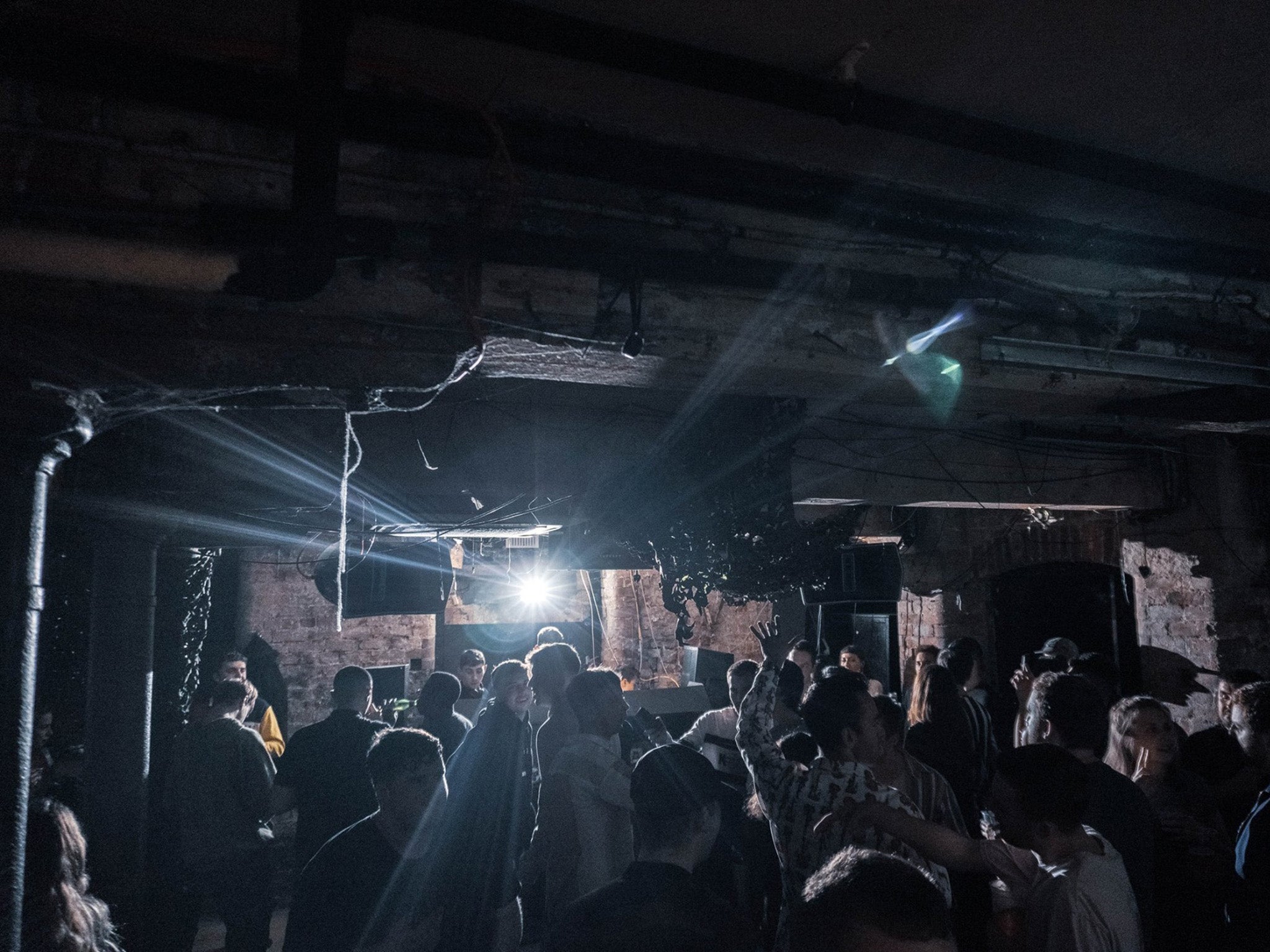
Hull’s Bdrmm had just released their debut album on the independent Sonic Cathedral label. It was described by NME as a “modern day shoegaze classic”. While well deserved, a five-star review will only get you so far. To build upon the momentum, Bdrmm need to play live.
Lead singer Ryan Smith is remarkably phlegmatic about the situation confronting the band: “We’ve kept on writing as difficult as that has been. It’s been nice to have the time to do that even if we could do with some more practices. We’ve done a few live sessions in between the two lockdowns, one of which got picked up by NME. We’ve had the momentum from the album, which has kept us going. The fact that people are still talking about it has given us a boost. It has made us think what we’re doing is worthwhile.
“We did have a tour booked for the back end of last year. It’s now moved to October this year. But I think this is the most optimistic we’ve felt in a while because now we’re finally in a situation that we may be able to play again soon. It’s been hard but this is our passion. This is what we want to do. Hopefully we can end up in the small percentage that do succeed. It’s nice to see that the sort of music we play is getting a resurgence. In the meantime, I’m lucky. I’ve been able to go back to work.”
Smith has been working as a plumber. For one of the sessions the band recorded, meanwhile, they had to do without guitarist Joe Vickers because of his other job: he works with disabled children. Being able to fall back on other occupations is invaluable for artists just starting out. In a pandemic, when they’re unable to play, it’s priceless.
Another morale boost for the band, whose members come from both sides of the Pennines, was the rescue of the Welly, one of two venues Hull looked to have lost at the beginning of the pandemic, which played a key role in Smith’s musical education.
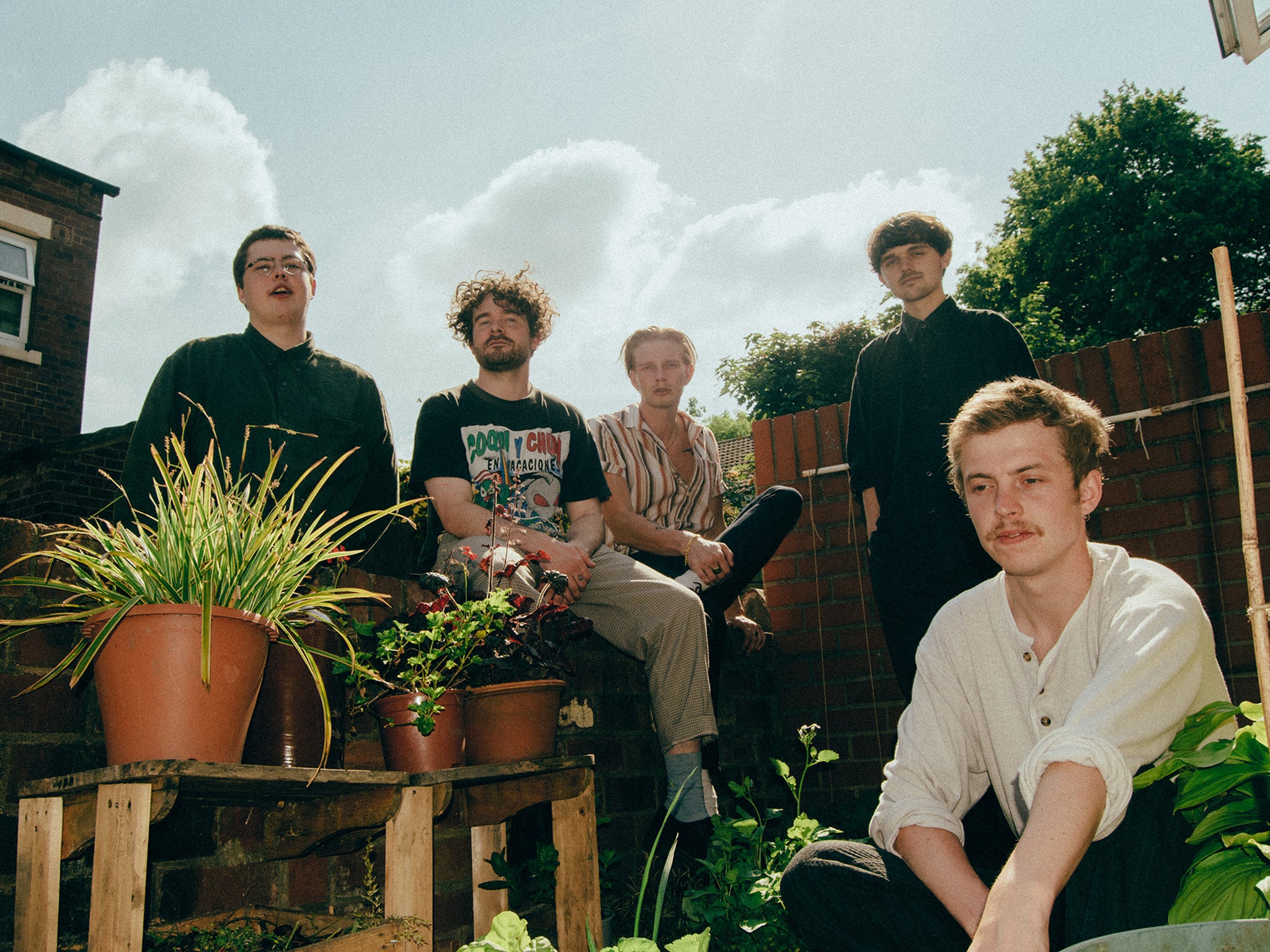
“It was good to know that people cared enough to save things like the Welly especially in Hull. It’s so important. It shaped my taste growing up. Not a lot of limelight gets shed on Hull.”
But how many others have been lost? Davyd says they have only one confirmed closure: the Woolpack in Doncaster. But there may be more.
In addition to the 20 red list venues, there are about 300 on the trust’s “green list” and another 400 have an amber rating, which means they are being “monitored all the time so we can make sure they are receiving their grants and are not being chased by landlords or services”.
Read More:
But there’s also a fourth list, a blue list, made up of 170 or so venues with which the trust has lost touch.
“We don’t know why that is. It could be a result of the furlough, it could be through their repurposing their businesses while they are closed to live music. It could because they’ve given up. You can’t easily tell. All venues look closed up at the moment, because they’re, well, closed.
“We are hopeful that they have maybe gone into sleep mode but we don’t know for certain. We don’t know whether they will come back.”
To lose that many venues would, obviously, be a tragedy because as Davyd points out, “in some places they’re the gateway to music”.
It’s a gateway that needs to remain open.
Join our commenting forum
Join thought-provoking conversations, follow other Independent readers and see their replies
Comments